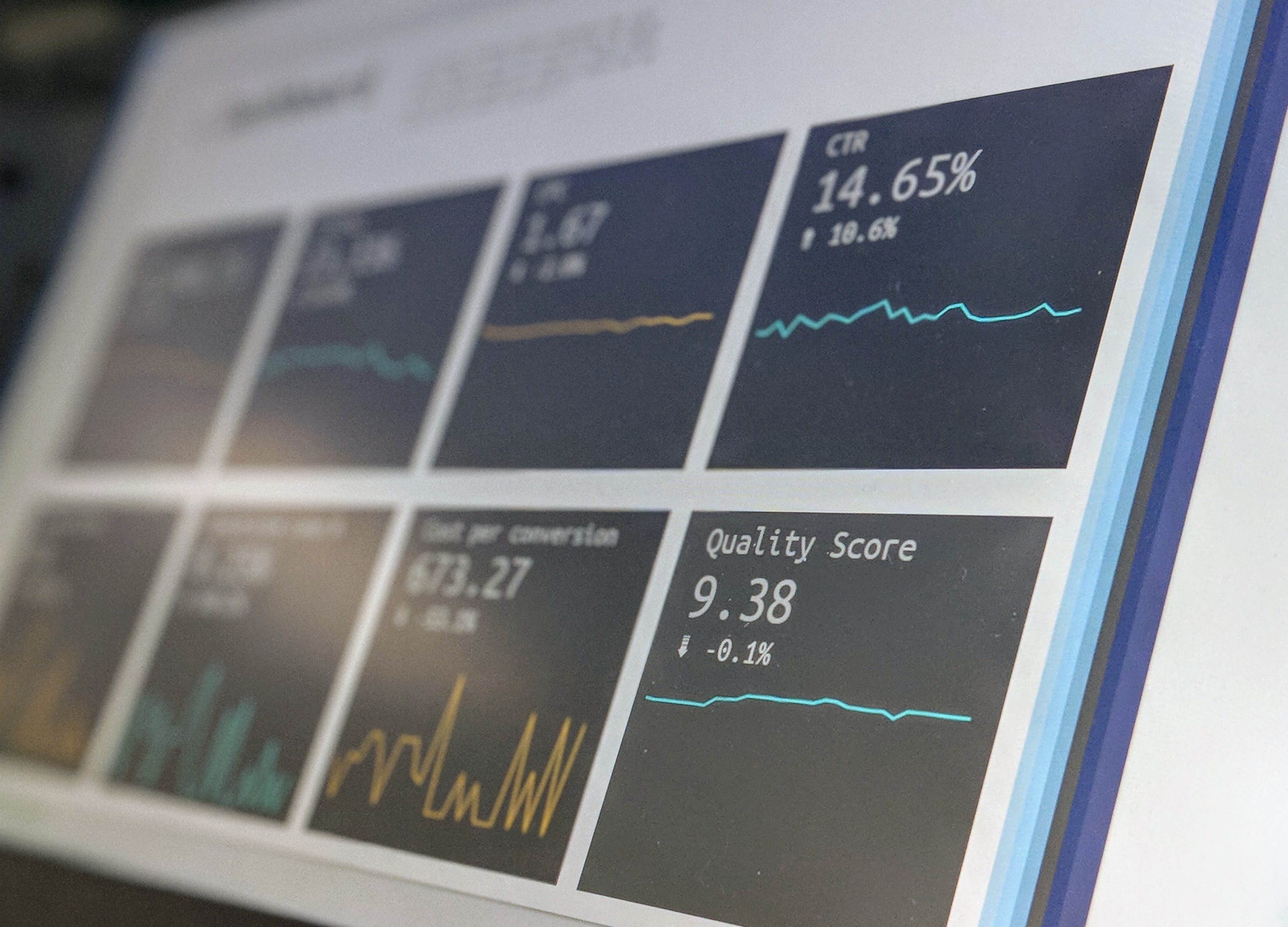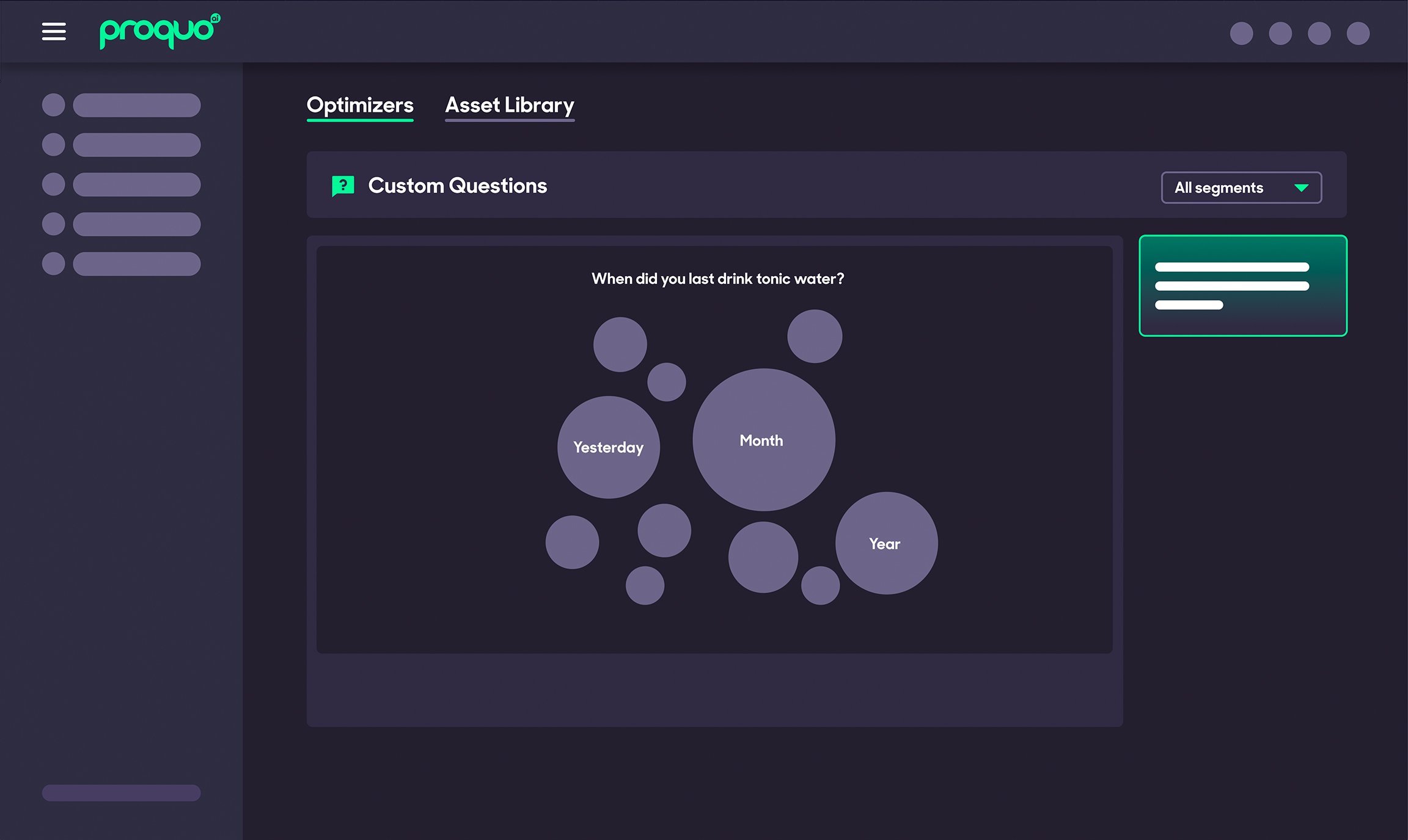Posted on October 10, 2023
Updated on October 10, 2023
4 min read time

In an era where data reigns supreme, businesses can access abundant information about their customers, campaigns, and advertising efforts. This can be seen as beneficial, offering precise measurements to enhance marketing efficiency. However, the reality is far more complex.
How do you measure the effectiveness of your marketing efforts? Are you lost in the myriad of engagement metrics? Or waiting months for results, still leaving you briefing the next campaign with guesswork?
Brittany Pinney, CRO, ProQuo AI
In a nutshell, marketing effectiveness measures how well a company's marketing efforts translate into tangible results and contribute to the organization's overall success. We’ll be looking at this from a business objectives perspective, and customer feedback-oriented approaches.
Tracking marketing effectiveness is no walk in the park, primarily due to three significant challenges:
In our current digital era, the path customers take to purchase is more complex and unpredictable than ever before. Consumers engage with brands through various touchpoints, both online and offline, often in a non-linear way. They might come across a product on social media, do research on a website, see an advertisement on TV, and eventually buy it in a physical store.
As a marketer, it can be challenging to determine which touchpoint had the most impact on a customer's decision. Was the initial social media exposure as influential as the final in-store experience?

Nowadays, businesses are bombarded with excessive information, which can lead to data fatigue. Though having access to extensive data sets can be beneficial, it can also be overwhelming. It is difficult for marketers to determine which metrics, KPIs, and analytics tools are crucial for assessing marketing effectiveness.
Excessive data collection can result in "analysis paralysis," in which marketing teams get too caught up in gathering and analyzing data, losing sight of their primary goals. Sifting through extensive datasets to extract valuable insights requires advanced tools and data science proficiency. As a result, numerous businesses find it challenging to derive actionable insights from their data, impeding their ability to make well-informed marketing decisions.
At its essence, marketing aims to affect how people behave. It involves forging emotional bonds, molding opinions, and cultivating customer allegiance. Nevertheless, these components of marketing are naturally subjective. Unlike concrete statistics like website traffic or business data, evaluating brand sentiment or the impact of a creative campaign frequently requires subjective analysis.
Moreover, factors beyond marketing efforts can affect metrics like brand awareness and customer satisfaction, making it difficult to attribute success solely to marketing.
Clearly, the influx of information can be overwhelming, but it's also a treasure trove of insights waiting to be harnessed. Brands must learn how to interact with data and extract meaningful metrics to effectively measure marketing effectiveness.
This can be approached in two ways. First, you can analyze data points, charts, percentages, etc. And second, you can explore what people are saying about your brand (that too can be translated into data points).
The sales-oriented marketing effectiveness measuring can be achieved by following a couple of metrics. These are:
You've met with some, if not all, of these metrics. But how can brand managers benefit from truly understanding their purpose?

Tracking these metrics over time allows you to observe trends and identify patterns. For instance, if you notice a rise in CAC, a decline in sale volume may signify a need to reassess your customer acquisition and retention strategies.
Moreover, using these metrics to evaluate performance promotes accountability, fostering a culture of responsibility within marketing teams. You can measure marketing efficiency by establishing clear goals before a campaign, which should include the metric listed above.
Ultimately, the objective of any business is to maximize profitability. Measuring these metrics allows you to identify opportunities to increase revenue, reduce costs, and enhance the overall efficiency of your marketing efforts, all of which contribute directly to your brand's bottom line.
Apart from the sales-oriented metrics you can measure, there are, of course, marketing ones. Brand awareness, brand satisfaction, and loyalty, to name a few. You can dive deeper into the most popular marketing metrics and how they can improve your Brand Equity score in one of our recent articles.
But there is a lot that raw, sales, or marketing-oriented numbers can't tell you about your brand. To be successful in your category, equations cannot be your single source of truth. Why? Because these are missing the most crucial element — humans. Numbers can tell you how people interact with your brand, but not why.
Understanding what your current and potential customers think and feel about your brand is equally important as ROI and Customer Acquisition Costs. For example, you can notice that the ROI from the latest campaign increased. That's great. But why, exactly? The primary purpose of consumer intelligence is to understand that why.
However, any Brand or Marketing Manager reading this knows how much effort goes into data analysis, scouring the Internet for comments about your brand, and reading through reviews, survey answers, and much more.

To address these concerns, we've taken the best of both worlds and created a framework based on people's real thoughts and feelings and made it referenceable and quantifiable in seconds. You and your competition are measured on the same scale by 16 Drivers of Brand Equity, which translates into the quality of your relationships with your customers.
Using the framework, you can quickly identify your brand's strengths and weaknesses, uncover hidden opportunities within your industry and against your competitors, and create actionable strategies to optimize brand performance. Of course, at any point in time, you can dive deep into all the responses, ask custom questions, and even analyze your assets with Creative Testing.
That's the most comprehensive and intuitive way of measuring your marketing effectiveness.
Start measuring your marketing effectiveness based on genuine insights ready to be actioned today!
To learn more about ProQuo AI's platform, we'd love to give you a tour and answer any questions you may have!
Our intelligent platform will take your brand further, faster.
Don’t believe us?
© 2020-2023 ProQuo AI International
All rights reservedWebsite by Blend